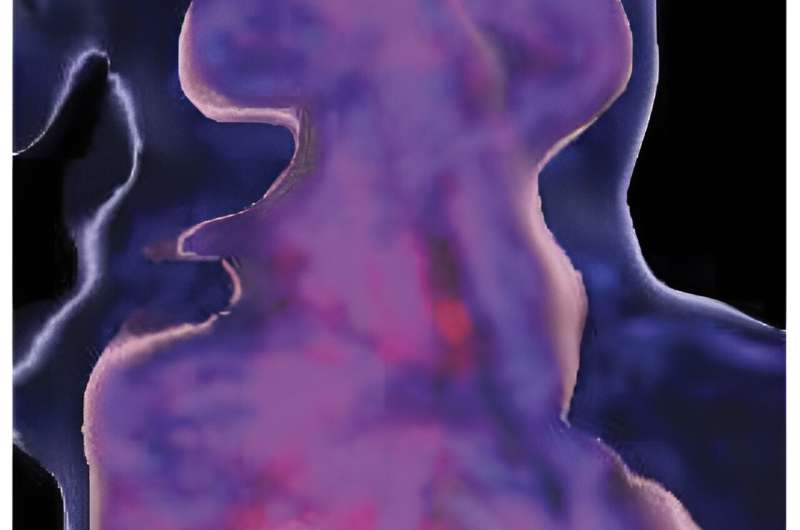This article has been reviewed according to Science X's editorial process and policies. Editors have highlighted the following attributes while ensuring the content's credibility:
fact-checked
peer-reviewed publication
trusted source
proofread
Stress found to influence brain and psyche via immune system

Chronic stress has far-reaching consequences for our bodies. For example, many stress-related psychiatric illnesses, such as depression, are associated with changes in the immune system. However, the underlying mechanisms of how these changes affect the brain remain largely unknown.
An international research team led by the University of Zurich (UZH), the University Hospital of Psychiatry Zurich (PUK), and the Icahn School of Medicine at Mount Sinai, New York, has now uncovered a novel mechanism. Their study is published in Nature.
"We were able to show that stress increases the amount of the matrix metalloproteinase-8 (MMP-8), an enzyme in the blood of mice. The same changes were found in patients with depression," says author Flurin Cathomas. MMP-8 travels from the blood to the brain, where it alters the functioning of certain neurons. In the affected mice, this leads to behavioral changes: they withdraw and avoid social contact.
According to Cathomas, the findings are novel in two respects: "Firstly, they indicate a new 'body-mind mechanism,' which might be relevant not only for stress-related mental illness but also for other diseases that affect both the immune and nervous systems." Secondly, says the psychiatrist, identification of the specific MMP-8 protein could be a potential starting point to develop new treatments for depression.
Changes to brain extracellular matrix
The researchers were able to use animal models to show that stress increases the migration of a specific type of white blood cells called monocytes into the vascular system of the brain, particularly into the reward center regions. These monocytes produce MMP-8. MMP-8 is involved in the restructuring and regulation of the net-like frame that surrounds neurons in the brain—called the extracellular matrix.
"If MMP-8 penetrates the brain tissue from the blood, it changes the matrix structure and thus disrupts the functioning of the neurons. Mice who are affected by this process display changes in behavior that are similar to those seen in humans with depression," says Cathomas.
In order to prove that MMP-8 was really responsible for the behavioral changes, the researchers removed the MMP-8 gene from some of the mice. Compared to the control mice, these animals did not display stress-related negative behavioral changes.
"Blood analyses of patients with depression indicate that the findings from the mouse models are also relevant for humans: both the monocytes and MMP-8 were increased in the blood of people with depression in comparison to healthy participants."
Many more studies are needed before the results can be implemented in clinical practice. Nevertheless, says Cathomas, "Our work once again demonstrates the importance of the interaction between the immune system and the brain in the development of psychiatric disorders. These insights are already being incorporated into psychiatric treatment today."
On the PUK's special ward for integrative care led by Cathomas, the clinicians take a holistic mind-body approach based on the latest scientific findings when treating their patients.
The research team is now planning clinical studies to investigate the extent to which the immune system can be influenced by stimulating certain areas of the brain. They will also look at whether any changes in the immune system cells of depressive patients influence their behavior.
More information: Flurin Cathomas et al, Circulating myeloid-derived MMP8 in stress susceptibility and depression, Nature (2024). DOI: 10.1038/s41586-023-07015-2. www.nature.com/articles/s41586-023-07015-2





















